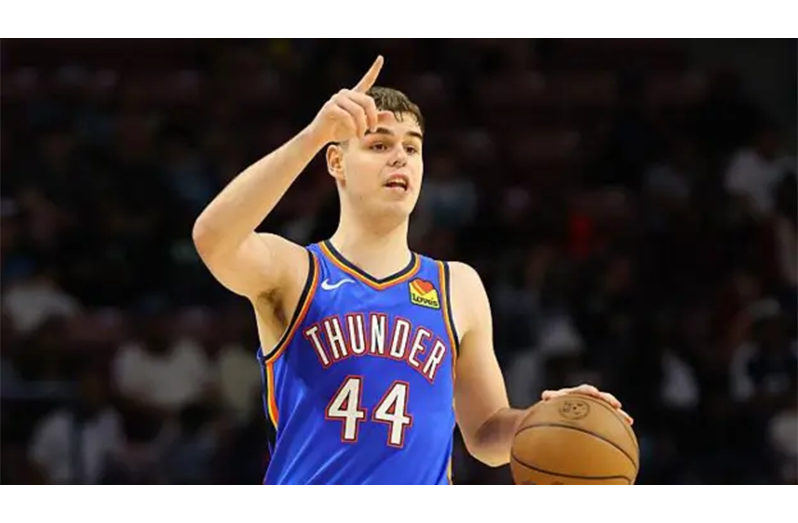Copyright Essence

Antonia Dean spent one summer as a law associate at a Washington D.C. firm after graduating from Harvard Law School and realized corporate law just wasn’t for her. It simply wasn’t sparking any joy (editor’s note: as a law school graduate myself, I completely relate), so on her last day as a summer associate, she did what any reasonable person would do: started a beauty blog. That unconventional move led her through the cosmetics industry and eventually into venture capital. Today, she’s a Principal at Black Operator Ventures, an Oakland-based VC firm that’s invested a whopping $20 million into 15 Black-led tech companies (the firm’s backers include Dropbox founder Drew Houston and a16z co-founder Ben Horowitz). In her role, Dean is putting her money where her mouth is, handling everything from a founder’s first pitch to wiring the money. She’s also one of very few Black women at her level in venture capital, which deserves an applause in itself. Black women founders already receive less than 1% of VC dollars, but there are even fewer Black women on the other side of the table making those funding decisions. So why is that? The problem starts way before anyone gets to a VC firm. “The numbers of Black women in check writing positions in VC are low because the numbers of Black women in the pipeline for VC investor roles is also low,” Dean says. If you know anything about VC, then you know that the typical path goes one of two ways: high finance (top MBA, investment banking, private equity, then VC) or you were a successful startup founder or early hire at a company that had a big exit. Black women are underrepresented at every step of the finance route. And on the startup side, when Black women founders are getting less than 1% of venture dollars, there aren’t many big exits creating the next generation of Black women investors. “Because of this, Black women don’t have the same access to Wall Street or first-hand startup experience that’s needed to be a successful VC,” Dean explains. But there’s something else that doesn’t get talked about enough. The job is demanding, and can be brutal (particularly when it comes to your mental and physical health in an industry where we’re already underrepresented). This includes, long hours, unpredictable schedules, and you pretty much have to live in San Francisco or New York, two of the most expensive cities in the country. “Black women are caretakers for our families, and we wear many hats especially as a lot of us are the heads of our households. Being a VC is incredibly demanding,” Dean says. So even when Black women start down this path, they hit structural barriers that force them to choose jobs with more flexibility. Which makes sense, but it also means the industry keeps losing talent. Dean points out there are incredible Black women investors doing the work—Melissa Bradley, Monique Woodard, Jewel Burks Solomon, Stacey Brown-Philpot—and organizations like Black Women in VC and BLCK VC supporting and mentoring women in the industry. But the numbers remain low. From where Dean sits at Black Ops VC, which is based in Oakland and was founded in 2021 by serial tech entrepreneurs James Norman and Sean Green, she sees the funding landscape clearly. “The harsh truth is that Black founders have never had equal access to the capital they need to start and fund companies,” she says. There was a moment post-2020 when investors paid more attention to Black founders. A lot of those dollars have dried up now. But Black founders know the game. “Most Black founders know that access to capital is more challenging for us. So while there has been a shift, Black founders have always had to think two steps ahead and build companies that are more resilient because they knew that the well would dry up eventually,” Dean says. They focus on getting product-market fit sooner, getting paying customers earlier, building businesses that can survive without constant VC money. Her advice for Black women who want to break into VC as investors? Actually understand what venture capital is—high-risk, high-reward capital where success means a company getting acquired or going public for hundreds of millions or billions of dollars. “Black women need to educate themselves on the fundamentals of VC investing and VC math so they can spot not just a good company that will make money, but a truly exceptional company that has the potential to be worth hundreds of millions, if not billions, of dollars,” Dean says. Develop your own investment thesis. Most VC jobs never get posted (firms hire from their networks) so put yourself in proximity to investors. You can do this by going to startup ecosystem events, making small angel investments (if you can afford it) and positioning yourself as someone who’s already good at this. “And don’t let anybody make you feel like you don’t belong, or that you don’t have the experience, or can’t do the job. You do and you can,” Dean says. “Your challenge is to find the people who don’t have to be convinced, who don’t have to be sold, who won’t look at you as taking a risk, but instead see your brilliance and what you bring to the table.” For founders seeking funding, understand what VCs want and find investors aligned with where you want to take your company. Don’t pitch enterprise software investors when you’re building a consumer product. And figure out if you even want VC money. “If you want to grow slowly, or build a company you can pass down to your grandchildren, or own 100%, VC may not be the right asset class to fund your dream,” Dean says. What would it actually take to change the industry? Dean thinks it comes down to exits. Big ones. “Capital follows capital. When Black-led or founded startups get massive acquisitions or go public, that will be the alarm bell to many investors that their biases caused them to leave money on the table.” Those big exits create new investors who can put money back into the next generation of startups. Also, you may not realize it, but you don’t have to work in VC or tech to help. Ask your alma mater how much of their endowment is invested in firms with Black women in leadership. When you see news about a Black-led startup, sign up as a user or buy the product because those metrics help founders raise money. Also, suggest Black women investors as speakers at events. “The more visibility and support of Black women investors and Black-led startups is what’s going to move the needle,” Dean says. It’s not a quick fix, but at least now we’re talking about the real barriers instead of pretending it’s just a pipeline problem that’ll solve itself.



